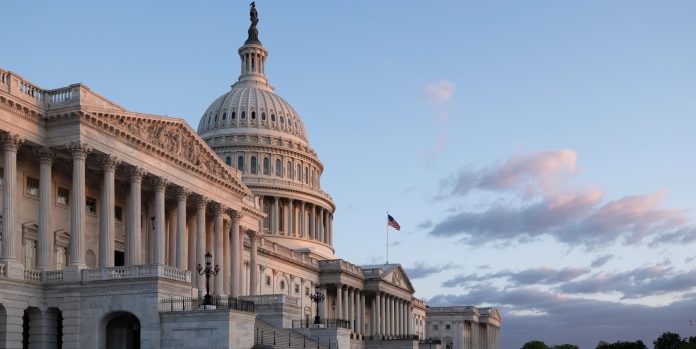Alabama’s labor force is becoming increasingly dominated by government employees, including federal, state, and local workers. The bottom line is that all levels of government continue to grow, not only in Washington, D.C., but here in Alabama as well, and taxpayers are paying for that expansion.
According to June numbers from the federal Bureau of Labor Statistics, in 2024 government employees made up 17.9% of Alabama’s workforce, 4.2% higher than the national average. Of the approximately 2.25 million citizens working in Alabama today, more than 405,000 of those are working for some form of government, nearly one in every five employees. The Federal Reserve estimates that around 58,400 (14.4%) of those employees work for the federal government, an increase of more than 3,000 workers since 2020.
From a historical perspective, the percentage of government workers in Alabama has remained relatively constant over the past 35 years. In 1990, approximately 18.4% of employees worked for some form of government. That percentage grew to 20.4% in 2010, before declining to its current level. However, in terms of the actual number of Alabamians employed by some level of government, the total has increased by 84,500 employees since 1990. In seven of the past 10 years, the state has increased overall government employment, a total growth of 8.0%.
Why should you care that more Alabamians than ever before are employed by the government? There are several reasons.
First, anyone who pays federal, state, or local taxes is directly fueling the expansion of government. As the public sector becomes larger so does its influence and encroachment into activities that should be performed by the private sector. Instead of investing more money into the government, lawmakers should be looking for policy solutions that spur additional private sector growth.
Second, public sector spending growth cannot happen without increases in tax revenue and/or increases in debt. Over the past 20 years, nominal federal spending has grown by more than 167%, peaking at $6.8 trillion in 2021 amid the federal government’s response to the COVID-19 pandemic, before declining to $6.1 trillion in 2023. Over the same period, federal tax revenues increased by 136.1%.
Increases in federal spending have been accompanied by substantial increases in annual federal deficits as well as cumulative debt.
The last time that the federal government had a budget surplus was in 2000. Since then, annual federal deficits have ranged from $32.4 billion in 2001 to a peak of $3.1 trillion in 2020. Last year the federal government spent about $1.7 trillion more than it collected from taxpayers. In just the past 10 years federal debt held by the public has increased by more than 105%, reaching $26.2 trillion in 2023. According to the Heritage Foundation, a child born in 2024 will assume $82,590 in federal debt, with that number projected to grow 2.5 times by the time they reach the age of 30.
Eventually all Americans will pay the price for unsustainable spending, whether that be in the form of significant tax increases or a severe downturn in the U.S. economy.
Thankfully, the Alabama Constitution requires the state to have a balanced budget each year. However, that does not mean that taxes and spending have not increased here as well. In the past 10 years combined state General Fund and Education Trust Fund spending has grown by 47%, not including supplemental appropriations approved by the Legislature. Over the same period, combined revenues grew by nearly 81%.
With each new dollar spent by federal, state, or local governments, dependency on those governments increases. In 2023 alone, the federal government funneled over $64 billion through direct payments, contracts, grants, and other forms of financial assistance to Alabama, making our state one of the most federally dependent states in the nation.
The more money that Alabama’s state and local governments take from Washington, D.C., the less control our elected officials have over how that money, as well as state and local funds that are required to match federal funding, can be spent, forcing Alabama values to bend to whichever political party controls the federal government at any given time.
Any level of government should be as unobtrusive as possible, allowing the citizens that it serves and the private sector to flourish. Its objective should not be to raise and spend as much money as possible to ensure continued growth and dependency. Alabama has added 84,500 government employees at all levels in the past 35 years. This is one symptom of the disease that is government expansion across the United States.
In the long run, it means less freedom and opportunity for Alabamians.
Justin Bogie is the Senior Director of Fiscal Policy for the Alabama Policy Institute.
Don’t miss out! Subscribe to our email newsletter to have all our smart stories delivered to your inbox.



